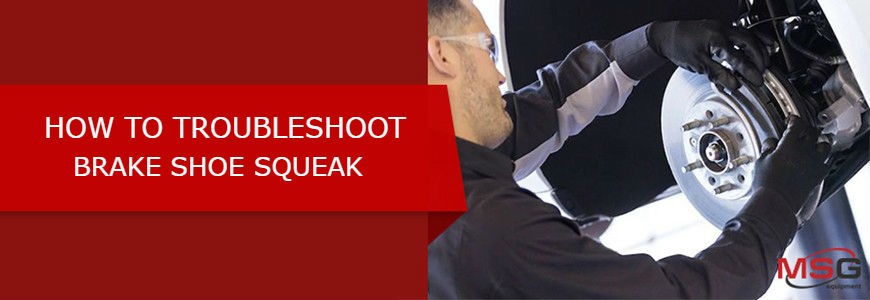
Brake shoes are the vehicle elements doomed to work on friction. Thus, their wear out and subsequent replacement are natural and inevitable procedures. Moreover, the front brake shoes wear out 2-3 times faster than the rear ones.
If you hear the brake shoes squeaking, even if they are almost new, our article will help you understand the causes of this problem and eliminate them.
How to reduce the brake shoes squeaking
So, if a new set of shoes began to squeak before working for some time, do not despair and do not rush to and replace them. This unpleasant sound can occur because of the special spraying which is used for cover of shoes in the process of production. Try to run the shoes through for 2-3 days making sudden braking at times. Thus, the factory spraying will erase and the squeak will disappear.
Incompatible material of shoes and discs
Note that the composition which covers the frictional zone of the shoes is kept secret from ordinary inhabitants and, above all, from other manufacturers. Why should competitors know the success formula? So, the more durable the brake shoes, the harder and stronger they vibrate which may cause increased squeaking. "Soft" shoes create less extraneous noise when working but they will erase faster as well.
As a result of such confidentiality, the materials from which the shoe friction lining are made of may be incompatible with the brake discs coating and, as a result, will squeak while friction.
What to do to stop the shoe squeaking?
To avoid squeaking, try to replacing the shoes with others (of another manufacturer) or lubricate them with special compounds. However, do not use oil lubricants and WD-40 because they reduce the safety of driving. To learn which method is more suitable for you, turn to a sales consultant in the auto parts store.
If you want to install non-original shoes, you can prevent their squeaking by removing the metal burrs (they are frequently present) by emery and by processing the ends of these parts with fireproof paint. Such procedures will reduce the clearance between the friction lining and the brake disc surface.
Before installation of shoes in the caliper, do not forget to lubricate the guides with a grease containing graphite.
If all described manipulations did not help, inspect the brake discs for wear. Perhaps it is time to replace them.
Brake shoes self-oscillation
Self-oscillation of the shoes is another possible reason for their squeaking when the vehicle brakes. The cause of this phenomenon may be a malfunction of all components of the brake system in contact with the shoes, namely:
- The brake caliper sticks due to its poor operation or unadjusted guides
- Souring of guide rails
- Forming the shoulder (protruding edge) along the outer diameter of the brake disc due to its wear
- The destruction of brake laths, their broke components block the caliper which leads to its sticking
How to determine brake shoes wear out
- There is a knock when the car brakes abruptly
- The braking system behaves inadequately (braking distance is increased or the wheels are suddenly blocked)
- On the wheel disks the metal shaving is observed, it is the result of a scratched shoe by the disc
When to change brake shoes
The thickness of the friction lining should be at least 2-3 millimeters. The shoes wear is proved by transverse grooves which are located on the protective lining and are observed when the friction coating is erased.
Currently the brake shoes are more frequently equipped with special sensors to monitor their wear and tear. When the frictional layer of the shoe reduces to a critical value, you hear squeaking and the sensors send a signal to the computer which is reflected on the control panel as a lighted indicator.
Now you know the causes of malfunctions of the brake shoes and what you should do to prevent them from failures. And if you are interested in repair of the brake calipers, visit this page.



COMMENTS